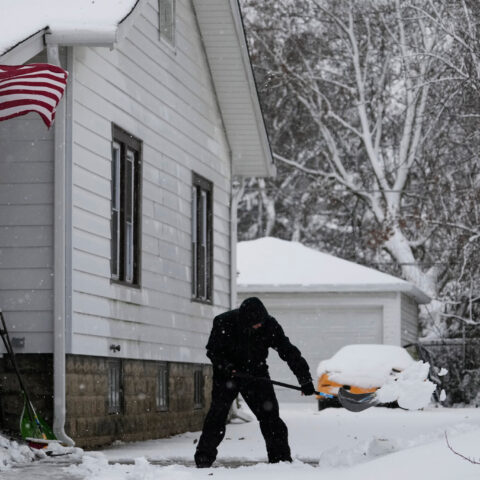Are you contemplating a heat pump for your New Zealand home? If so, you’re on the right path. Heat pumps offer a highly energy-efficient solution for both heating and cooling, ideally suited to NZ’s climate. This ultimate guide delves into everything you need to know about heat pumps, from their basic functionality to choosing the right type, installation tips, costs, and more.
What is a Heat Pump?
Basic Functionality
A heat pump is a versatile system designed to both heat and cool your home. Unlike traditional heating systems that generate heat, heat pumps transfer heat from one place to another. During the colder months, they extract heat from the outside air—even when it’s chilly—and bring it indoors. Conversely, in the summer, they expel heat from your home, keeping it refreshingly cool.
Types of Heat Pumps
Air Source Heat Pumps
Air source heat pumps are the most prevalent type. They work by extracting heat from the outside air and transferring it inside your home. These systems are cost-effective, relatively easy to install, and suitable for a variety of climates, making them a popular choice in NZ.
Ground Source Heat Pumps
Ground source heat pumps, also known as geothermal heat pumps, utilize the stable temperature of the ground to provide heating and cooling. They are more efficient than air source heat pumps but come with higher installation costs due to the need for extensive underground piping.
Water Source Heat Pumps
Water source heat pumps use bodies of water such as lakes, rivers, or wells as a heat source. Although less common, these systems can be highly efficient if you have access to a suitable water source nearby.
Why Choose a Heat Pump in NZ?
Energy Efficiency
Heat pumps are remarkably energy-efficient. They consume less electricity compared to traditional heating systems because they move heat rather than generating it. This efficiency is particularly advantageous in NZ, where electricity prices can be substantial.
Cost-Effectiveness
While the upfront cost of a heat pump may be higher than other heating systems, the long-term savings on your energy bills make it a cost-effective choice. Over time, the reduced running costs will offset the initial investment, offering significant savings.
Environmental Impact
Heat pumps have a lower environmental impact compared to fossil fuel-based heating systems. By utilizing renewable energy sources—air, ground, water—they help reduce greenhouse gas emissions, contributing positively to the environment.
Choosing the Right Heat Pump for Your Home
Climate Considerations
NZ’s diverse climate means that selecting the right heat pump involves considering the specific weather patterns in your region. Coastal areas may require different solutions compared to inland or high-altitude regions. Understanding the local climate can help you choose a heat pump that will perform efficiently year-round.
Home Size and Insulation
The size of your home and the quality of its insulation are crucial factors in determining the best heat pump for your needs. Larger homes or poorly insulated houses may require more powerful systems or multiple units to maintain a comfortable temperature throughout the year.
Efficiency Ratings
When choosing a heat pump, it’s essential to look at its efficiency ratings. High-efficiency models may have a higher initial cost but will save you more money in the long run through lower energy bills. Efficiency ratings are often expressed as SEER (Seasonal Energy Efficiency Ratio) or HSPF (Heating Seasonal Performance Factor).
Installation and Maintenance Tips
Professional Installation
Ensuring professional installation of your heat pump is crucial for optimal efficiency and safety. A professional installer will correctly position the unit and configure it for the best performance, ensuring it operates smoothly.
Regular Maintenance
Regular maintenance is key to keeping your heat pump running efficiently. Simple tasks like cleaning filters and checking refrigerant levels can significantly impact performance and longevity.
Filter Cleaning
Cleaning the filters regularly prevents dust and debris from clogging the system. Dirty filters can reduce efficiency and cause damage over time, so it’s important to keep them clean.
Refrigerant Checks
Maintaining proper refrigerant levels is vital for the heat pump’s performance. Low refrigerant levels can lead to inefficient operation and potential damage to the compressor, so regular checks are essential.
Cost of Heat Pumps in NZ
Initial Investment
The initial cost of a heat pump varies depending on the type and size of the unit. On average, you can expect to pay between $3,000 and $10,000 for a heat pump system in NZ. This price range includes the cost of the unit and professional installation.
Running Costs
Running costs for heat pumps are generally lower than traditional heating systems. Depending on usage and the efficiency of your unit, you can expect to pay around $500 to $1,000 per year in electricity costs. These lower operational costs make heat pumps a financially sound investment over time.
Government Incentives and Rebates
How to Apply
The NZ government offers various incentives and rebates for installing energy-efficient systems like heat pumps. To take advantage of these, you can apply through the Energy Efficiency and Conservation Authority (EECA) website, which provides detailed information on available programs and application procedures.
Eligibility Criteria
Eligibility for these incentives typically depends on factors such as your household income, the type of heat pump installed, and whether it meets specific energy efficiency standards. Checking the specific criteria on the EECA website can help you determine if you qualify.
Common Problems and Troubleshooting
No Heating or Cooling
If your heat pump isn’t providing heating or cooling, check the thermostat settings and ensure the unit is switched on. If the problem persists, it could be due to a refrigerant leak or compressor issue. It’s advisable to consult a professional technician for a thorough inspection and repair.
Strange Noises
Unusual noises from your heat pump can indicate problems such as loose components or debris in the unit. Rattling, buzzing, or grinding sounds should not be ignored, as they can lead to more significant issues if left unattended. Regular maintenance and prompt professional inspections can help prevent these problems.
Poor Airflow
Poor airflow can result from clogged filters or blocked vents. Regular maintenance, including filter cleaning, can help prevent this issue. If airflow remains a problem, there could be issues with the ductwork or the blower motor, requiring professional attention.
Future Trends in Heat Pump Technology
Smart Heat Pumps
The future of heat pumps includes the integration of smart technology. Smart heat pumps can be controlled remotely via smartphone apps, allowing you to adjust settings even when you’re not at home. These systems can learn your heating and cooling preferences, optimizing performance for maximum efficiency and comfort.
Integration with Renewable Energy
As renewable energy becomes more prevalent, heat pumps are increasingly being designed to integrate seamlessly with solar panels and wind turbines. This integration allows homeowners to use renewable energy to power their heat pumps, further reducing their environmental footprint and energy costs.
Advanced Efficiency Features
Future heat pumps will likely feature even more advanced efficiency technologies, such as variable speed compressors and advanced inverter technology. These innovations will allow heat pumps to adjust their output more precisely to match the heating or cooling demand, enhancing efficiency and reducing energy consumption.
Conclusion
Heat pumps are an efficient, cost-effective, and environmentally friendly solution for heating and cooling your home in NZ. With various types and brands available, you can find the perfect system to meet your needs. Regular maintenance and proper installation are crucial to ensuring your heat pump operates efficiently. As technology advances, heat pumps will become even more integrated with smart home systems and renewable energy sources, making them an even better investment for your home.
FAQs
How long do heat pumps last?
Heat pumps can last between 15 to 20 years with proper maintenance.
Are heat pumps noisy?
Modern heat pumps are designed to operate quietly, with noise levels similar to a refrigerator.
Can a heat pump be used for both heating and cooling?
Yes, heat pumps can provide both heating and cooling, making them versatile for year-round use.
How often should I service my heat pump?
It’s recommended to service your heat pump annually to ensure it operates efficiently.
Do heat pumps work in extremely cold weather?
Yes, but their efficiency can decrease in extremely cold temperatures. Some models are designed to operate efficiently even in sub-zero conditions.
Are there any government rebates for installing a heat pump?
Yes, the NZ government offers rebates and incentives for installing energy-efficient heat pumps. Check the EECA website for details.
What size heat pump do I need for my home?
The size of the heat pump needed depends on factors like the size of your home, insulation levels, and local climate. A professional installer can help determine the right size for your needs.
Can I install a heat pump myself?
It’s recommended to have a professional install your heat pump to ensure it operates safely and efficiently.
Keep an eye for more news & updates on TribuneBreaking.com!







